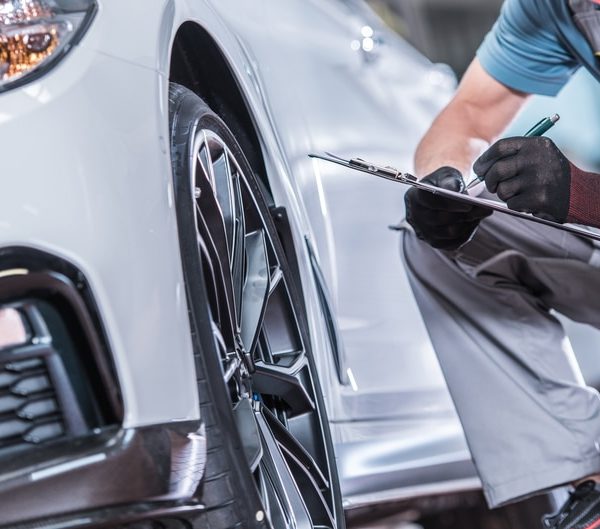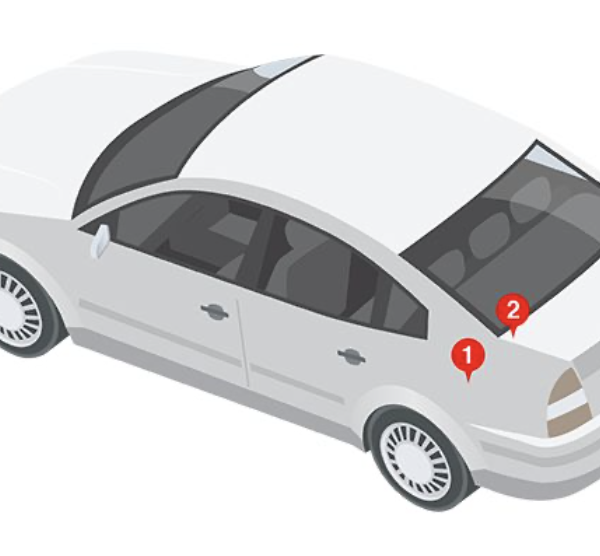10 Tips to Help Keep Your Car Forever

There are any number of reasons why you might want to extend the life of your vehicle. Money might be tight; perhaps you don’t see any new or used vehicles you are interested in buying; or maybe you’re just in love with your car and can’t imagine parting with it. Whatever may be motivating you, there are steps you can take that will ensure that your jalopy has a long life if not an eternal one.
Get the Timing Right
Thanks to the silent workings of your timing belt or chain, all of the moving
parts of your engine run without a hitch mile after mile. However, when this crucial component is not functioning properly, your entire engine can be destroyed in a heartbeat. Depending on the model of your car, your belts should be replaced every 60,000 to 100,000 miles, with chains requiring a change less often. The next time you are at your local garage, ask your mechanic to make sure your chains or belts are in good working order. Replacing them won’t be cheap, but the job only needs to be done once every few years, and it can make all the difference in the world.
Be Cool
It’s easy to forget from the insulated comfort of your driver’s seat, but your
engine is actually exploding numerous times every day just to keep you moving. The resulting fiery heat requires moderating, and that is what your cooling system is expressly designed to do. In order for it to work, it needs a steady supply of antifreeze or radiator fluid that should be topped off
regularly.
If your car’s thermometer shows that it is overheating or if you see a puddle
of fluid under your vehicle, you may be losing coolant. It is crucial that you
replace it immediately. Furthermore, you need to get to the bottom of any
underlying issues that may be causing the problem. In many cases, coolant loss is brought about by an internal or external leak. Specifically, you might have a leaky gasket, a failed radiator hose, a crack in your radiator or an improperly sealed radiator cap. The life expectancy of an inadequately cooled car is extremely short, so get your issue diagnosed and corrected as soon as possible.
Remember Your Oil
Just as we humans rarely contemplate the fact that blood is constantly being pumped through our veins and we would be at a total loss if it was
contaminated, we can often neglect the life blood of our car, which is oil.
Your engine is a wonder to behold, a mechanism made up of many moving parts that are under intense stress. Oil is the lubricant that allows all of these parts to move smoothly. It also acts as a cleanser, eliminating the build-up of debris and helping dirt to pass into the oil filter for removal. Oil also works along with radiator fluid to keep the engine cool so that it can work properly.
When oil gets old, it loses its effectiveness. As a result, dirt can accumulate. What’s more, the possibility of overheating is increased. That’s why it is so important to change your oil on a regular basis. In the past, the rule of thumb was to swap out your oil every 3,000 miles. However, engine chemistry has changed in recent years. If your car is less than eight years old, you can get away with changing your oil after anywhere from 7500 to 10,000 miles. When in doubt, consult your vehicle’s manual for the optimal customized recommendation.
Stick With the Good Stuff
It’s easy to be lured into the traps laid for you by savvy salespeople who
promise that their product will give your car eternal life and optimal
performance. The truth is that as long as you change your oil and fluids
regularly with quality products and stick with genuine parts, you have an
equally good chance of prolonging the lifespan of your vehicle. In the end, you will save money, and your vehicle will be none the worse.
Get it Inspected Regularly
Even if you have mechanic chops, you should have your vehicle thoroughly gone over by someone with an objective eye on a regular basis, ideally once a year. While it does represent a significant expense to get a tune-up and full inspection, a mechanic you trust might pinpoint problems that have not yet come to the surface and give you ways to prevent them from ever doing long-term damage. What’s more, you can add your yearly inspections to the written history of your vehicle. Should the day come when you decide to sell, prospective buyers will be glad to know that you have been conscientious about spending money on regular maintenance from a competent outside mechanic.
Keep Tires, Wheels and Brakes in
Excellent Condition
When you think about it, tires perform a crucial function. They are the only
thing that connects your car with the road. In wet and slippery conditions,
they truly can mean the difference between getting to your destination safely and being the victim of an accident. For that reason, you should not be miserly when it comes to your tires. If you do, you risk causing wear and tear on many of your car’s parts and throwing your suspension out of whack.
Obviously, brakes and wheels also play a life-saving role. You should never
compromise when it comes to replacing them if they are worn out.
Keep Your Car in the Game
There is an old saying that if you don’t use it, you lose it. Believe it or
not, it applies to cars just as much as it does to your brain. A car that is
taken on regular outings receives the benefit of frequent engine lubrication as oil flows through its system. What’s more, brake fluid, oil and antifreeze work together to keep hoses and gaskets from becoming dry and brittle.
Keep Your Car Clean
No, this isn’t your mother nagging you. A shiny car has more advantages than a mirror-like finish. All of the elements you encounter on a daily basis while driving, including road salt, grime, dirt, bugs, bird droppings, snow and tree sap, can compromise the outward appearance of your vehicle, and that’s not all. If left untended over time, the damage can go into the paint and even beyond that and to the metal itself. When it gets to that point, it is irreversible, leading to a dingy appearance and lower resale value.
It’s easy to procrastinate when it comes to washing your car. After all, it
will just get dirty again, right? However, regular washings and occasional
waxing will help to make your finish impervious to the assaults of nature and the road. In the event that you are seeing slight scratches or dings in your car’s finish that a wash and wax will not cure, don’t panic and jump to the conclusion that you have to spend tons of time and money to get a full body workup. If damage is minor, you can take care of the problem on your own in many cases by using automotive touch up paint. Because it can be color matched to the exact shade of your vehicle, small imperfections in your exterior can be rendered virtually invisible – and with hardly any effort or financial outlay on your part.
Keep it Light
Whether you have a compact vehicle or a pickup, one principle holds true: the less weight you have in the car, the better the vehicle will perform and the longer it will last. Additional weight puts added stress on your suspension, transmission, engine and brakes. Obviously, there will be times when you travel with extra people or things that weigh your car down temporarily; the vehicle was built for this eventuality. Just do your best to remove any unnecessary items that could be dragging your car down over time.
Let Your Car Wake Up
Chances are, you like to begin your day relatively slowly; you don’t jump out of bed and directly out the door without first preparing for your day. By the same token, you should give your car an opportunity to adjust to getting moving before you zoom out of your driveway. That’s because while it has been sitting idle, all of the motor oil will have pooled, and it takes a little time before your distributor pump has a chance to disperse the fluids throughout your engine. Even idling for a minute allows the oil to get to the proper temperature and flow to all of the necessary parts. Just 60 seconds each morning can prolong the life of your engine.
Your car is more than just a conglomeration of metal, fabric, leather, glass
and fluids. In many ways, it is an extension of you that is important to you in ways both practical and emotional. By regularly caring for and maintaining your wheels, you can prolong the working life of the vehicle while also maintaining its luster and beauty.

 Cart
Cart
 Help Desk
Help Desk






